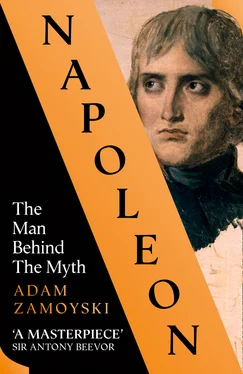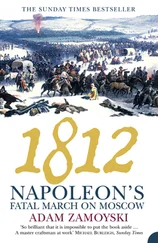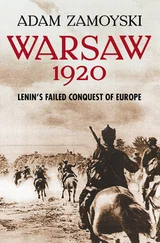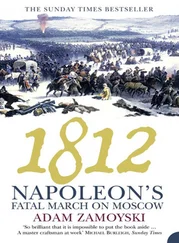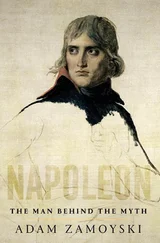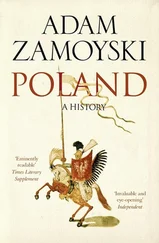Both sides prepared for a resumption of hostilities. Austria took possession of the Venetian territory promised to it, while Bonaparte took over Venice itself and reorganised the area under his control. He had turned the lands taken from Venice into a Transpadane Republic, but then incorporated that with the Cispadane into one, to be known as the Cisalpine Republic. His aim was to deny the whole of northern Italy to Austria and create a political unit that could stand on its own but remain under French control. He hoped to introduce an administration which would allow it to raise and pay for enough troops to defend both itself and French interests. It was not a new idea, as Dumouriez had done much the same in the Austrian Netherlands and Hoche on the Rhine. The policy made sense to the generals operating in the respective areas, if not to the Directory. It was also partly inspired by the mission civilisatrice the Revolution was supposed to be carrying out as it liberated sister nations from feudal ‘slavery’. Bonaparte had the establishment of the Cisalpine Republic immortalised in a print showing himself before the tomb of Virgil, with the French people represented by a Herculean figure tearing the chains off a female figure representing Italy.
The reality did not live up to the ideal. Aside from a small number of Italian nationalists and Jacobins, the population had greeted the French incursion with varying degrees of hostility, which was greatly increased by the depredations of the troops and civilian administrators. Bonaparte had been careful not to upset local sensibilities by spreading revolutionary ideas, had refrained from toppling any throne (except that of Modena) or abolishing the privileges of the nobility, and had shown respect for the Church and the Pope (the Directors raged about his use of the terms ‘Holy Father’ and ‘His Holiness’ when writing and referring to him). Yet the majority of Italians remained sceptical and uncommitted. There were moments when Bonaparte despaired of the enterprise; and he was beginning to be distracted by other thoughts.
In April, the former French minister in Constantinople, Raymond Verninac, turned up at Leoben on his way back to France. He was concerned at the treatment of French citizens and interests in Egypt by the Mameluke beys who ruled it as a semi-autonomous province on behalf of the Ottoman Porte. For the past two years he had been receiving alarming reports from the French consul in Cairo, Charles Magallon, who since 1790 had been pressing for France to intervene militarily and, if necessary, take Egypt over as a colony.15
The Levant had been a French sphere of interest since the Crusades, when a French dynasty was established in Jerusalem, and later France had entertained close diplomatic and commercial ties with the Ottoman Porte. The two powers were united in opposition to Austria and Russia, both of which threatened Ottoman interests in the Balkans. Toulon and Marseille had grown up on trade with the Levant, which attracted colonies of French merchants. An Ottoman province since 1517, Egypt was ruled by a pasha nominated by the Porte assisted by Mameluke soldiers of Albanian and Circassian origin. The pasha had lost control, the beys did as they pleased, and the population suffered from their maladministration, corruption and cruelty. In the course of the eighteenth century many came to believe that Egypt was crying out for stable administration and development.
The loss of Canada and other colonies to the British in the 1760s prompted the French to look east. Featuring prominently in the art and literature of the eighteenth century, in the course of which France developed relations with Persia, the region seemed to offer great promise. The decline of the Ottoman Empire was a source of concern for France: if it were to fall apart, Austria and Russia would be the beneficiaries. A French base in Egypt would permit France to deny them that and Syria at least. It would also enable her to safeguard her interests in India, where she had a number of partisans among the Indian princes, chief among them Tipu Sahib of Mysore, who in October 1797 would make the last of several appeals for military assistance. A French force from Suez landing in Bombay at the heart of Mahratta territory would at the very least divert British forces.
As France lost further colonies to Britain in the West Indies in the 1790s, the case for acting in Egypt grew stronger. Magallon pointed out that the Nile delta provided the conditions to grow all the goods formerly derived from the Caribbean – cotton, rice, sugar, coffee and so on – while others could be obtained from neighbouring Arabia and Persia. When the British seized the Cape of Good Hope, cutting off the sea route to India, the appeal of obtaining a port on the Red Sea grew stronger, as did that of piercing the Isthmus of Suez with a canal. The idea of turning the Mediterranean into a French sea was a logical one, and with Spain onside and Corsica in French hands once more, it appeared practicable.16
When he occupied the port of Ancona earlier in the year, Bonaparte noted its strategic value and that of the Ionian islands across the Adriatic. They had been part of the Republic of Venice, and as soon as he was able to, he despatched a force to occupy them. He made overtures to the Ottoman rulers of Albania, assuring them of France’s good intentions and respect for their faith, and also to the Maniotes of the Peloponnese. Contemplation of those shores triggered a host of cultural references: Athens, Sparta, Homer and Alexander the Great litter his correspondence at the time.
Another strategic imperative for control of the eastern Mediterranean was Malta, and Bonaparte began gathering information on the state of its defences and the morale of its masters, the Knights of the Order of St John. He pressed the Directory to investigate the possibility of having a Spaniard elected Grand Master, which, Spain being France’s ally, would bring the island into France’s orbit.17
General Louis Desaix, who turned up at Mombello in late July, was intrigued to find Bonaparte poring over maps of Egypt and Syria. A year older than him, looking, according to Lavalette, ‘like a savage from the Orinoco dressed in French clothes’, Desaix had much in common with Bonaparte, always wearing a plain, poorly-fitting blue coat with no marks of rank, ill at ease in society and paying little attention to women. He caught Bonaparte’s enthusiasm, and they discussed the details of an invasion of Egypt sailing out of Venice with a corps of 10,000 French and 8,000 Polish troops.18
In his report to the Directory on 16 August Bonaparte warned that Austria was arming and would soon be in a position to field formidable forces for the reconquest of Italy, and argued that France must seek alternatives. ‘The islands of Corfu, Zante and Cephalonia are of greater interest to us than the whole of Italy taken together,’ he went on. ‘I believe that if we were forced to choose, it would be better to restitute Italy to the emperor and to keep the four islands, which are a source of riches and prosperity for our commerce. The empire of the Turks is crumbling by the day; the possession of these isles will put us in the position to support it for as long as that will be possible, or to take our share of it. It will not be long before we feel that, in order to really destroy England, we have to take Egypt.’19
Unbeknown to him, the Directory had a few weeks before received a memorandum from its foreign minister, Talleyrand, in which he put the case for seeking replacements in Africa and Egypt for the colonies lost to the British in the western hemisphere, and followed this up with three more documents developing the putative advantages, suggesting Egypt as a suitable place to begin.
The Directors had other things on their mind: they needed a general who could help them intimidate the chambers, and they approached Bonaparte. While he shared their alarm at the counter-revolutionary tide in Paris and urged them to act, he was wary of getting involved. He therefore sent them Augereau, a stalwart republican who was sure to be able to carry the troops with him. The manoeuvre had also rid him of a man he did not like or trust, and who was inconveniently popular among the rank and file.20
Читать дальше
